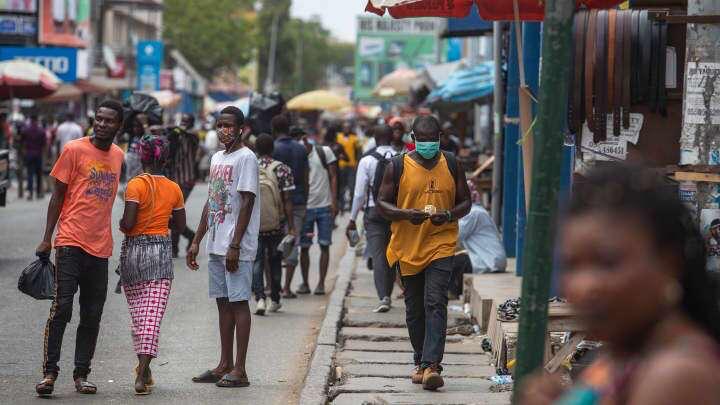While governments strive to tackle Covid-19 pandemic and revive their economies from its ravages, concerns about possible misuse of covid funds continue to grow in Africa, the Covid Transparency and Accountability Project (CTAP) has revealed.
In a research conducted in seven African countries (Ghana, Nigeria, Malawi, Sierra Leon, Kenya, Cameroon, Liberia), CTAP discovered lack of transparency and accountability for covid-related expenditure.
“While most countries signed up to processes such as open contracting and beneficial ownership in accessing the funds, there has not been full compliance as seen in the obvious gaps,” the CTAP report said.
The government of Ghana has since the emergence of the health crisis drawn billions of dollars in credit and grant schemes from the International Monetary Fund (IMF), World Bank, Bank of Ghana, among other development partners.
While audit processes might be required to ascertain abuse of resources, the lack of publicly available procurement details and delays in accounting for the funds leave room for misconceptions and erode confidence in public expenditure management.
“Given that emergency procurement regimes were globally adopted to urgently save lives, the disbursement process was exposed to greater potential for fraud, mismanagement and general inefficiencies than usual,” the report said.
CTAP found that commitments under the IMF’s Rapid Financial Loan Instrument to publish procurement plans, notices, and awards related to the emergency response were largely not complied with across the seven countries monitored.
Out of the many government contracts awarded during the pandemic, details about a handful can be seen on the e-procurement platform created to facilitate public procurement processes and reduce human interface which breeds corruption.
“During the COVID-19 pandemic in 2020, only few contracts were published on the portal, other public contracts during the period were not published,” the research found.
“Generally, some of the names for companies awarded other contracts for COVID-19 did indeed come into the public domain, but not as a result of their publishing in the National Gazette by Ghana’s Ministry of Finance as is required for procurement of items which are for the national interest; some of the companies awarded were identified through the work of journalists and CSOs, with most of them not included in the list of companies vetted by the Procurement Authority,” it added.
CTAP however, hailed the government for adopting electronic platforms in the application and disbursement of the GH¢600 million CAP-BuSS support scheme to Small and Medium-size Enterprises.
Summary from the seven countries
According to the report, the focus African countries faced challenges adhering to high accountability standards “even amidst evidence of corruption and undue profiteering from the pandemic.”
“A common thread runs through the countries: far-reaching transparency and accountability reforms are required, especially in an emergency period such as the COVID-19 pandemic,” the report recommended.
About CTAP
The COVID-19 Transparency and Accountability Project (CTAP) is a Pan-African project launched in the wake of COVID-19 to track public expenditure and governments’ response in African countries, with the aim to deepen transparency and accountability.
The project is a collaboration with BudgIT Foundation and Connected Development (CODE), two prominent civic-tech non-governmental organizations spearheading advocacy for openness, transparency and accountability in public finance in Africa.
Latest Stories
-
Damongo: NDC youth allegedly shuts down community mechanised borehole
20 minutes -
Mahama vows to uncap NHIS levy in upcoming budget
21 minutes -
‘God is telling you to lead through difficult times’, says Rev. Wengam to Mahama
23 minutes -
Appiah-Kubi calls on Mahama to review 60-Minister pledge if governance requires
25 minutes -
Aklerh makes a ‘Mash Up’ move
33 minutes -
No business as usual – Mahama warns appointees
41 minutes -
Mr P.O.P: Message from the Morning Man by Kojo Yankson
42 minutes -
True peace stems from justice, not the lack of conflict – Duncan-Williams
44 minutes -
One dead, student rider injured in a crash at Assin Andoe
45 minutes -
Have a long term plan and financial solution for Ghana’s energy sector to permanently get rid of “dumsor”.
50 minutes -
Ghana to commission first NuScale small modular reactor simulator training centre in Africa
51 minutes -
FirstBank celebrates year-end thanksgiving service at Victory Bible Church
1 hour -
FirstBank’s 2024 Graduate Trainees give back to the community: A day of learning and sharing at Mount Zion Presby Model Primary School
1 hour -
Fire destroys hundreds of shops in Techiman Central Market, traders left in despair
1 hour -
Apple board pushes against diversity rollback call
1 hour

